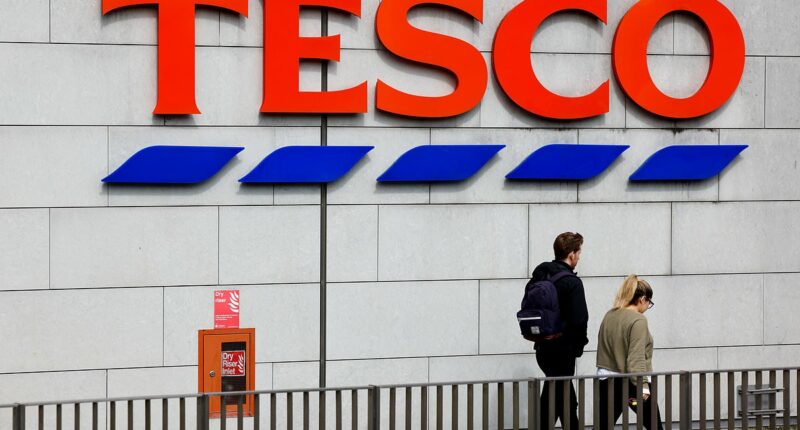Share this @internewscast.com
Tesco is urgently recalling several of its chilled pasta salads over fears they may be contaminated with salmonella, a potentially deadly food poisoning bug.
The supermarket has issued a warning to customers urging them not to eat the affected products and instead return them to any store for a full refund. No receipt is required.
The products involved include Tesco Basil Pesto & Semi Dried Tomato Pasta (225g), Tesco Chicken & Chorizo Pasta (285g), and Tesco Feta Semi Dried Tomato Pasta (290g).
The affected items have use-by dates of July 24 and 25, and may have already been consumed by unsuspecting shoppers before the warning was issued last night.
Salmonella is a type of bacteria that can, if consumed, cause vomiting, severe stomach cramps, diarrhoea and fever within hours of eating contaminated food.
Most people recover without medical treatment, but salmonella infection can be serious or even fatal in some cases, particularly in young children, the elderly, pregnant women and those with weakened immune systems.
Food safety officials at the Food Standards Agency (FSA) said: ‘If you have bought any of the above products do not eat them.
‘Instead, return them to any Tesco store for a full refund.’

Tesco is urgently recalling several of its chilled pasta salads over fears they may be contaminated with salmonella, a potentially deadly food poisoning bug

The products involved include Tesco Basil Pesto & Semi Dried Tomato Pasta (225g), Tesco Chicken & Chorizo Pasta (285g), and Tesco Feta Semi Dried Tomato Pasta (290g)

The affected items have use-by dates of July 24 and 25, and may have already been consumed by unsuspecting shoppers before the warning was issued last night.
The FSA advises consumers experiencing symptoms of salmonella to stay away from work, school or nursery until they have been symptom-free for at least 48 hours, to prevent passing the infection to others.
The products are part of Tesco’s own-brand chilled pasta range and are sold nationwide.
Salmonella is one of the most common causes of food poisoning in the UK. The bacteria are found in the gut of humans and animals, and infection typically occurs when people consume food or drink that has been contaminated with faecal matter.
The most frequently implicated foods include undercooked poultry, raw eggs, unpasteurised milk, and ready-to-eat products such as pre-packed salads and deli meats.
In June, the UK Health Security Agency warned cases of salmonella poisoning were art a ten-year high, with a 17 per cent increase from 2023, rising from 8,872 cases in 2023 to 10,388 cases in 2024.
The true number is thought to be much higher as many people recover at home without seeking medical attention.
Outbreaks linked to supermarket food products are rare but not unheard of.
In June 2022, hundreds of chicken products sold by Aldi, Sainsbury’s, Tesco and other UK supermarkets were pulled from shelves due to salmonella contamination.

Food safety officials at the Food Standards Agency (FSA) said: ‘If you have bought any of the above products do not eat them. Instead, return them to any Tesco store for a full refund.’

The supermarket has issued a warning to customers urging them not to eat the affected products and instead return them to any store for a full refund. No receipt is required
These included sandwiches, chicken salads and ready meals.
The same year, Belgian chocolate maker Kinder issued an urgent recall of its products—including the massively popular Kinder Surprise—due to salmonella fears.
Salmonella bacteria can survive on surfaces and multiply rapidly if food is stored incorrectly or handled without proper hygiene.
Although heat kills the bacteria, the risk with ready-to-eat chilled foods is that they are often consumed without further cooking.
In the UK, an estimated 33 people die each year from foodborne Salmonella, according to a study published in BMJ Open Gastroenterology.
The FSA issues food recall notices when a product presents a risk to public health.
More information on the latest recall can be obtained by writing directly to Tesco, at tesco.com/help/contact.

![Anne Burrell: Food Network Chef Found Dead Near Dozens of Pills [Report]](https://internewscast.com/wp-content/uploads/2025/06/Anne-Burrell-Food-Network-Chef-Found-Dead-Near-Dozens-of-200x110.jpg)











